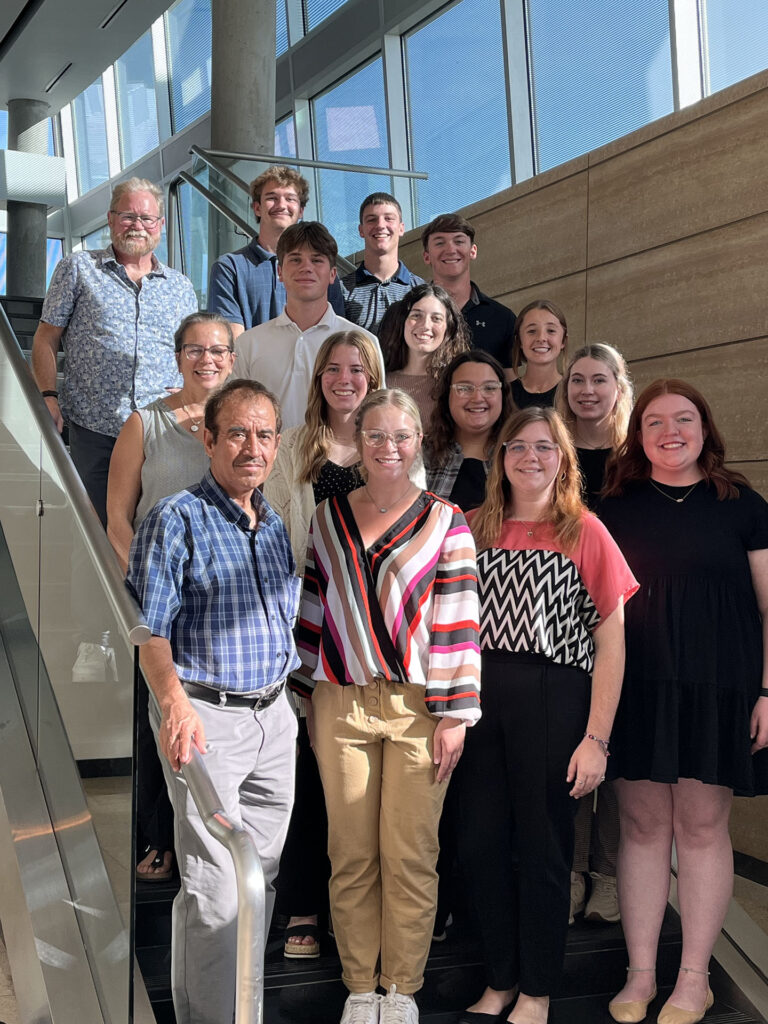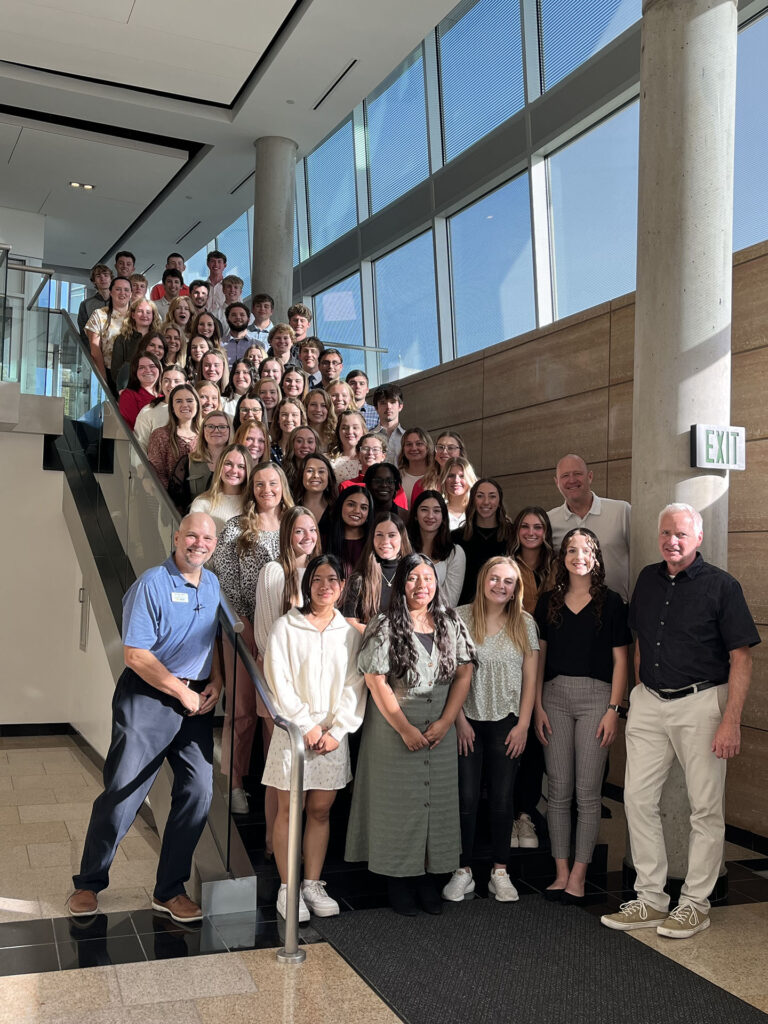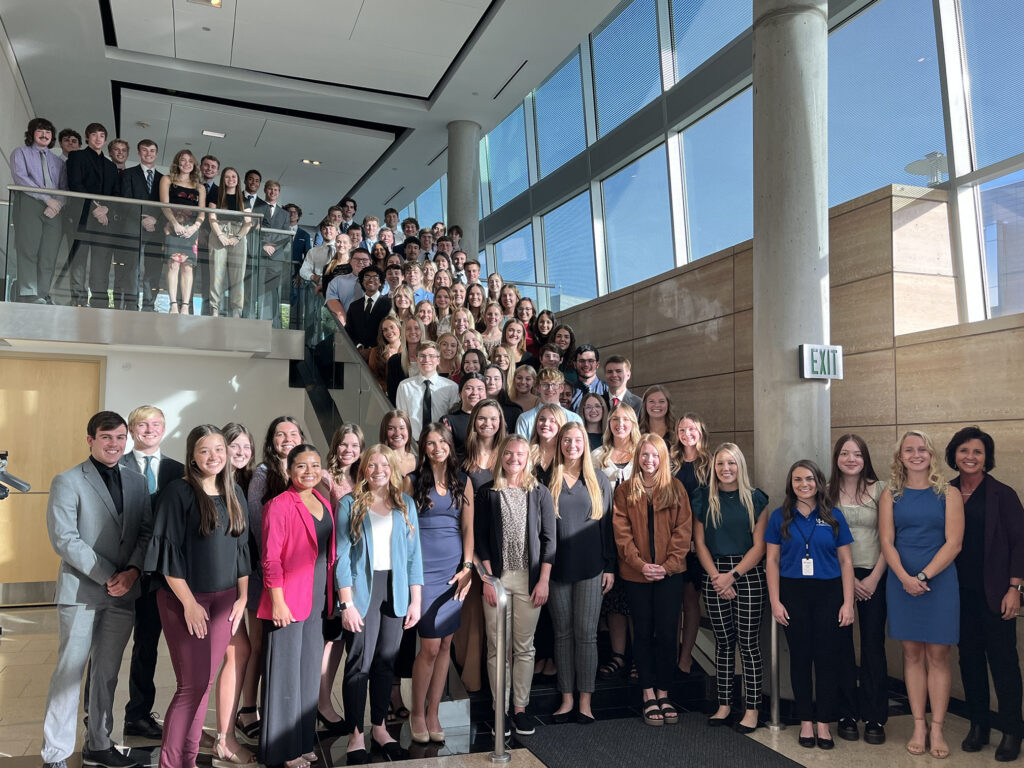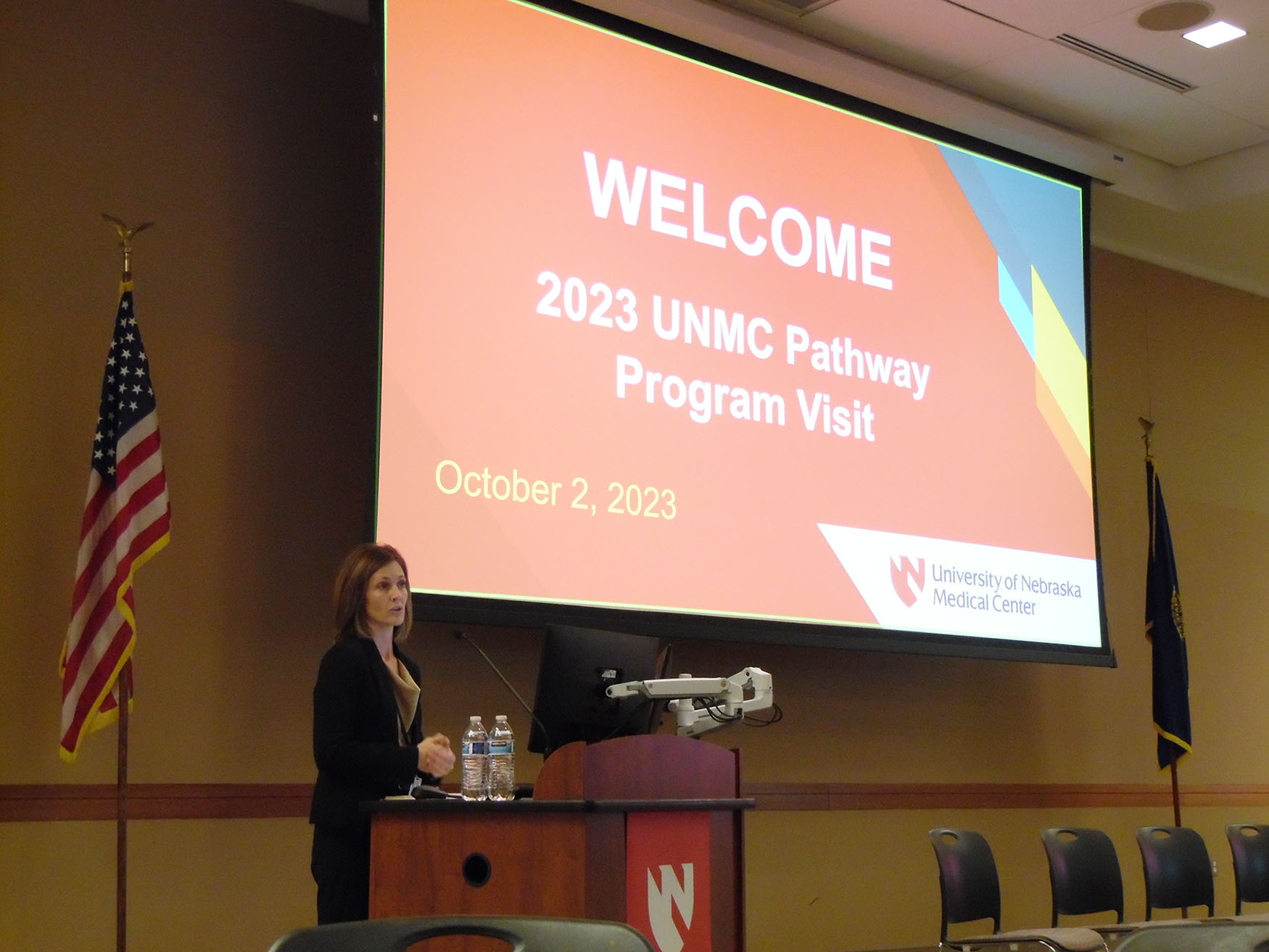A class of future health care professionals in the UNMC pathway programs got a preview of their upcoming UNMC education with a visit to the Omaha campus earlier this week.
During the annual on-campus experience, nearly 200 pathways students heard about their importance in filling needed roles in the health care workforce – particularly in rural areas. They were told about their importance to public health in the post-pandemic world. They stepped into some hands-on emergency training and saw UNMC’s latest clinical simulation technology.
The students are undergraduates from the Rural Health Opportunities Program, Kearney Health Opportunities Program and Urban Health Opportunities Program, representing five academic partner institutions of Chadron State, Peru State, Wayne State, the University of Nebraska at Kearney and University of Nebraska at Omaha.
Students in these programs are students from rural and urban underserved communities in Nebraska who commit to training at UNMC. Upon graduating from UNMC, they then commit to returning to their communities to practice in their health profession.
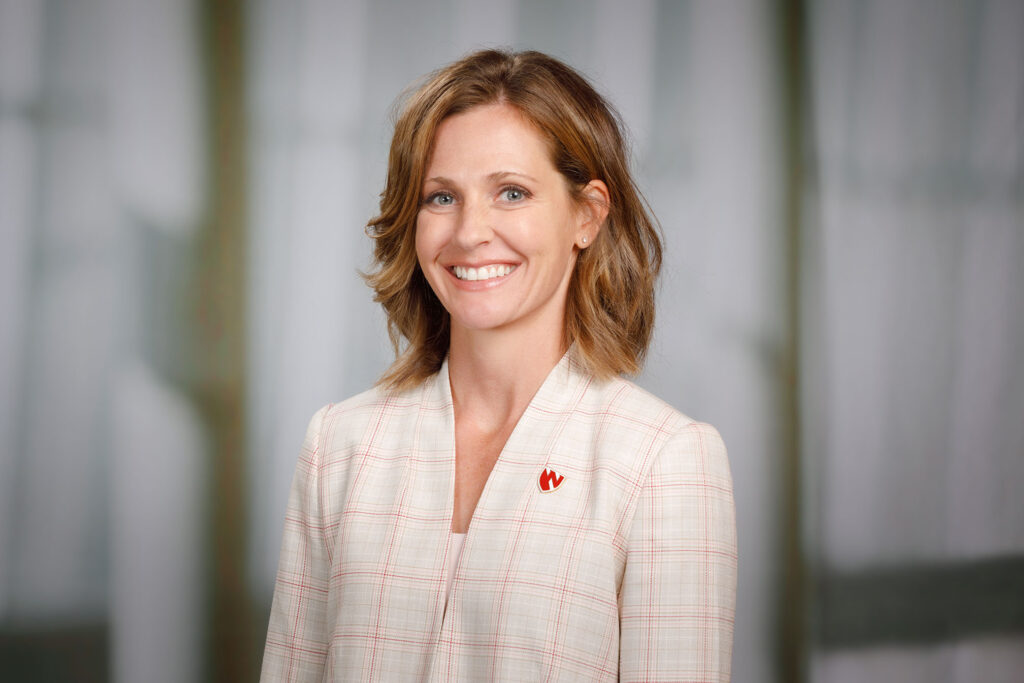
Nicole Carritt, assistant vice chancellor for health workforce education relations and director of Rural Health Initiatives, said the long-standing pathway programs have proven highly successful over time. She said they serve as a critical solution to addressing the state’s current and future health care workforce needs and maintaining access to health care throughout Nebraska.
On Monday, Carritt introduced herself to the group through her own rural roots and as a graduate of Wayne State and UNMC. Carritt told the students that UNMC is here to support them, “not just as a student, but once you graduate from our programs and are practicing as health care providers, hopefully in Nebraska.”
“As many of you know, there are pretty dire workforce shortages across disciplines, whether it’s medicine or pharmacy, public health, laboratory sciences, nursing, you name it,” she said. “Our rural communities and urban underserved communities really need you as health care professionals.
“So our job is to help you get there.”
In a videotaped message, UNMC Chancellor Jeffrey P. Gold, MD, said UNMC’s pathway programs are designed to set students up for success as fully fledged health care professionals in their home communities and across Nebraska.
“You are, after all, the future of health care here in Nebraska, across our country and beyond,” Dr. Gold said.
Mitchel Beeson of Clarkson, Nebraska, a second-year nursing student in the Kearney Health Opportunities Program, said he credited the KHOP program and its advisors with guiding him and putting him on a path to success.
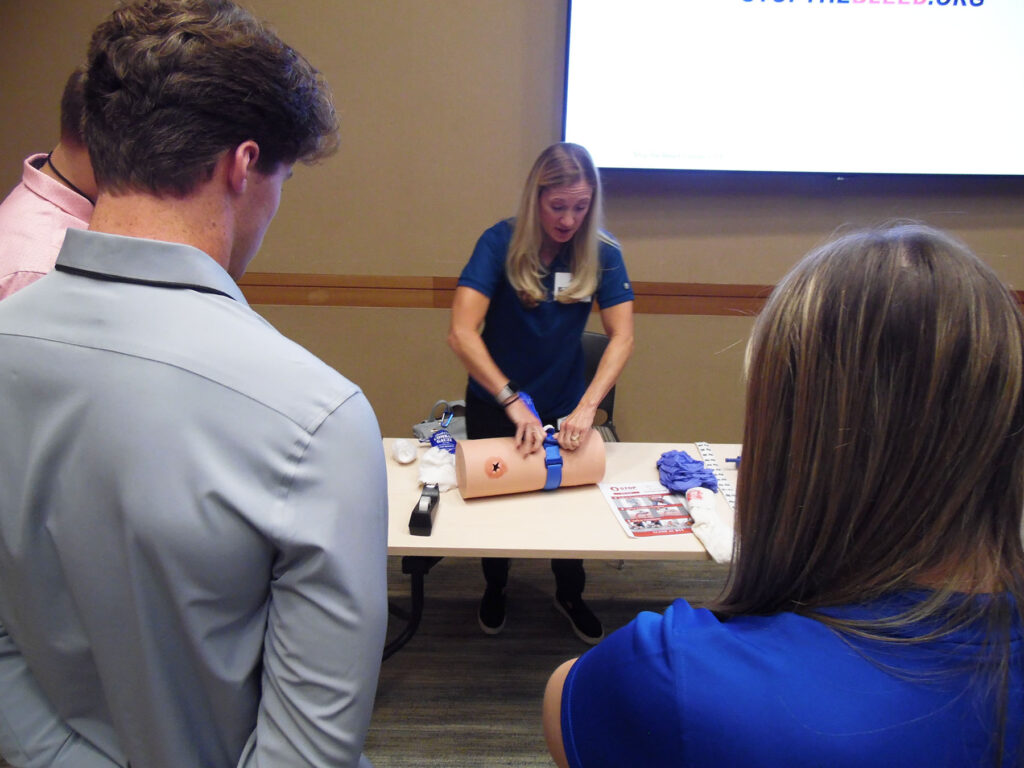
Next year, he’s on track to attend UNMC. He said his dream is to work in an emergency room and flight nursing.
With his second pathways visit to the Omaha campus, Beeson said, “It’s amazing getting out here and seeing just the scope of these pathways.”
He called UNMC’s facilities “incredible.”
“When they say that they’re top-of-the-line and one of the top rated in the country, you can tell why,” Beeson said. “The facilities are amazing.”
Carritt said the visit offers students an outstanding opportunity to visualize themselves in their health profession training program and as a future health care professional. Not only that, she said, students can start to build bonds with other students from across the state that they will eventually share classes or even practice with.
For campus leadership, faculty and staff, Carritt said, the visit offers a chance to demonstrate their commitment to the students’ success in becoming Nebraska’s health care workforce of the future.
Carritt called the visit a cornerstone of the students’ experience in the program.
“We are always excited to welcome our future students to our campuses for these in-person and immersive opportunities.”
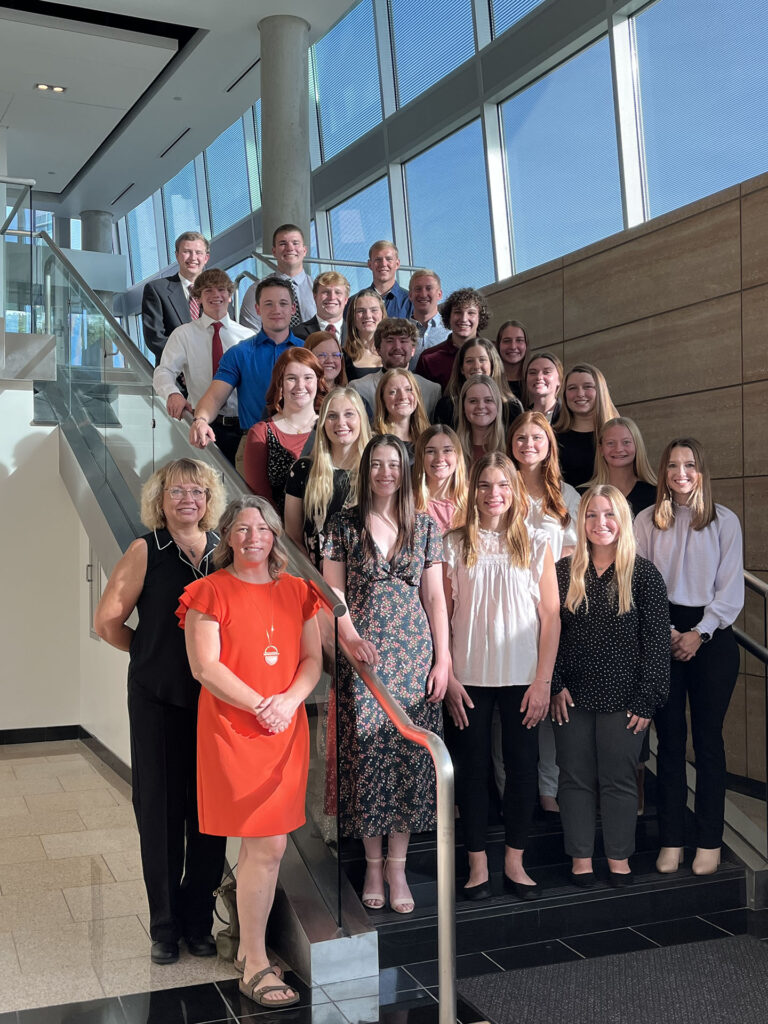
Rural Health Opportunities Program students at Chadron State College
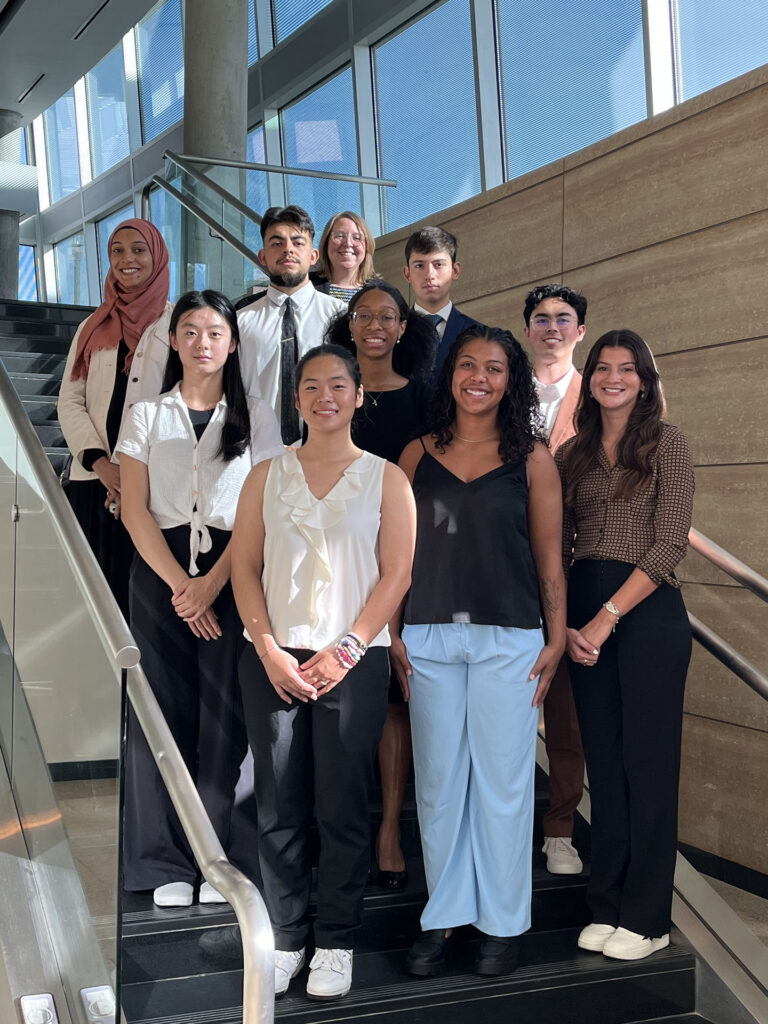
University of Nebraska at Omaha
